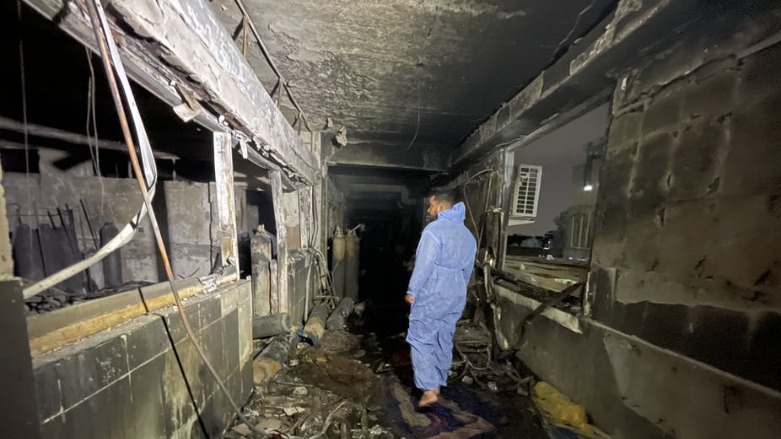Iraqi rights commission calls for accountability in deadly Baghdad hospital fire

ERBIL (Kurdistan 24) – The Iraqi High Commission for Human Rights (IHCHR) on Monday released a statement on the causes of a tragic fire that killed or wounded nearly 200 people at a Baghdad coronavirus hospital, handing out blame to the facility's administration, the Ministry of Health, and Civil Defense.
After a preliminary investigation, the commission said it had concluded that the overnight blaze started when an oxygen tank exploded inside the Ibn al-Khatib hospital, a facility designated for people with COVID-19.
More than 80 people were killed and 110 others injured in Sunday’s fire, according to the health ministry, but IHCHR said the death toll could be closer to 130, based on testimonies given to its team.
The commission said that the building’s corridors were overcrowded with visitors from the families of the hospitalized patients.
The hospital did not have an early warning system to warn of fire or other hazards, IHCHR said, noting that most of the rescue operation during the fire was carried out by patients' families. It also lacked specialized night staff to monitor emergencies, the commission said.
The commission cited eyewitnesses as saying that the middle floor of the hospital was completely burnt, including four halls, each with more than 30 patients, the majority being treated for coronavirus.
The statement described “clear inaction” by hospital management to rescue patients, as well as a delay in the response by civil defense teams.
IHCHR described the fire and failure to act as “flagrant violations of human rights,” particularly the right to health, and urged the Iraqi government to refer anyone proven negligent, directly or indirectly, to the judiciary, and to compensate families of the dead and injured.
Editing by Joanne Stocker-Kelly